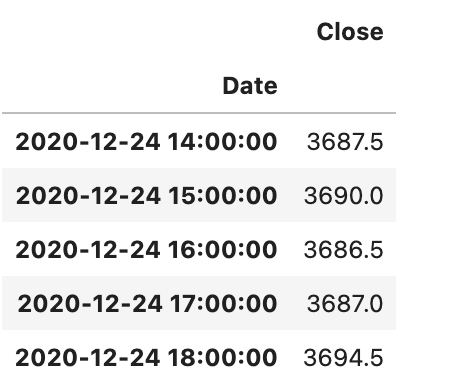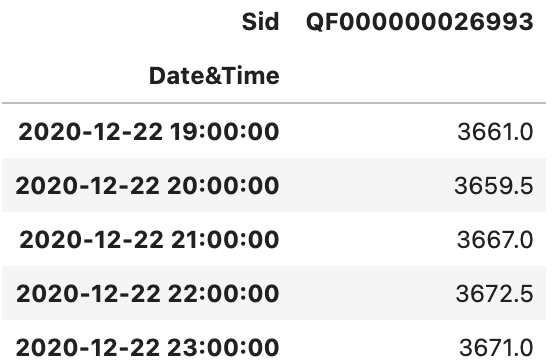Preface, if there is a better way to solve 1 & 2 in a Moonshot backtest, I'm not tied to either attempt below.
I need 2 pieces within Moonshot Futures:
- Rolls are stitched together (which
download_history_filedoes nicely). - The index is
DatetimeIndex, not atz-awareindex thatdownload_history_filegives.
Doing the below I get a resultant df:
def prices_to_signals(self, prices):
from quantrocket.history import download_history_file
download_history_file("es-1hr",
filepath_or_buffer="es-1hr.csv",
fields=["Close"],
cont_fut="concat")
df_es = pd.read_csv('es-1hr.csv')
df_es["Date"] = pd.to_datetime(df_es['Date'],
infer_datetime_format=True,
utc=True).dt.strftime('%Y-%m-%d %H:%M:%S')
# redefine prices
prices = df_es[["Date", "Close"]]
prices.index = prices["Date"]
prices.index = pd.to_datetime(prices.index)
closes = prices.drop(["Date"], axis=1)

This effectively solves 1 & 2 but requires quite a bit of manipulation to download a csv file then re-upload. And it requires all future prices dataframes to need it, as in positions_to_gross_returns. Then the backtest functionality throws errors.
Alternatively, if using the prices df directly you can satisfy the DatetimeIndex requirement but not the stitching (without manually coding which is what cont_fut='concat' is useful for).
from quantrocket import get_prices
prices = get_prices("es-1hr", fields=["Close"], start_date='2020-01-01', end_date='2020-12-24')
prices = prices.loc["Close"]
prices = prices.reset_index(level=[0,1])
prices[["Date", "Time"]] = prices[["Date", "Time"]].astype(str)
prices.index = pd.to_datetime(prices['Date'] + " " + prices['Time'])
prices = prices.drop(["Date", "Time"], axis=1)


